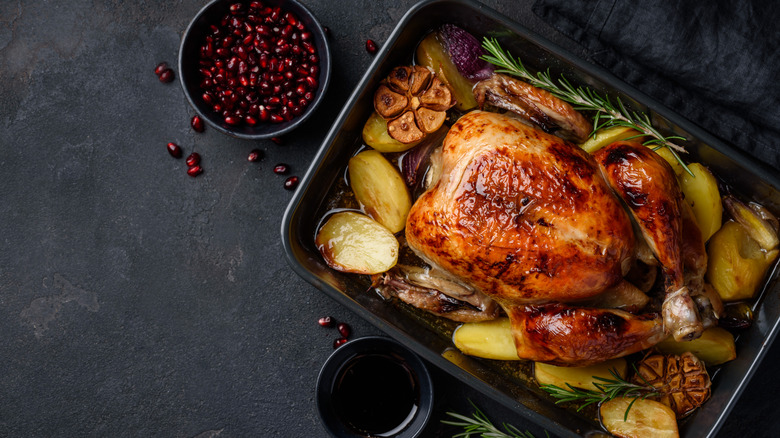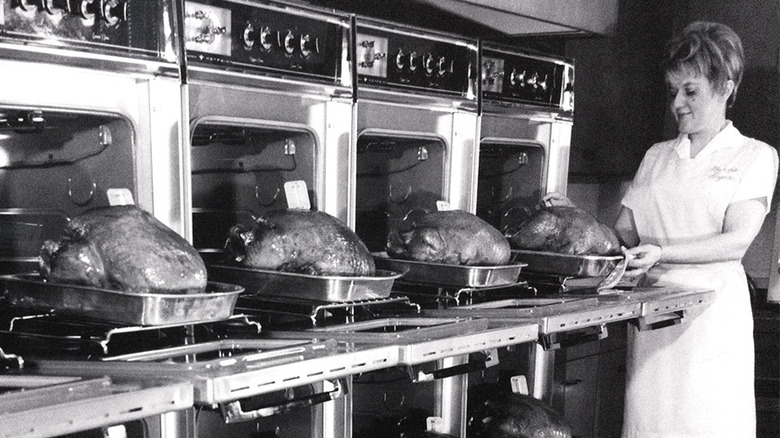Mistakes To Avoid When Making A Thanksgiving Turkey, According To An Expert - Exclusive
Let's call it like it is: Cooking up a great Thanksgiving turkey is no easy feat. There are the days of thawing, the hours of roasting, the option to grill or smoke or deep-fry, the careful carving, and then the piles of leftovers to deal with. If you've never cooked a turkey, it's okay to be a bit nervous about the first foray. And, if you have cooked a number of whole turkeys in your time, then you have probably botched it at least once.
Don't worry, even Rebecca Welch has had her turkey troubles, and she's a senior brand manager with Butterball, the company that produces roughly a third of the 46 million turkeys Americans will eat at Thanksgiving. During a recent exclusive interview with Mashed, Welch confided that she herself had once made one of the cardinal turkey prep mistakes: timing the thawing wrong.
"Forgetting to thaw [the turkey], moving it from the freezer to the refrigerator, I think that is one [of the] biggest mistakes ... I know myself, I had one Thanksgiving morning [when] I pulled the turkey out to prepare it, and it was still frozen solid," she said. "And I myself had to go through the cold water bath [thawing method] and it just made the day a lot more stressful and got the schedule off a little bit."
In fact, when it comes to the concerns people raise when calling into the Butterball Turkey Talk-Line, proper thawing is usually at the top of the list, with the cold water bath quick fix shared by Talk-Line experts time and again. But improper thawing is hardly the only mistake people make when prepping a turkey. Here are other missteps to avoid.
How to avoid overcooked turkey, according to a Butterball expert
"Nobody wants to have a dry turkey," Butterball Senior Brand Manager Rebecca Welch said during a recent interview with Mashed. And you can avoid dry turkey by brining and basting the bird, of course — but most important of all is simply not overcooking it. "[A] meat thermometer will help you make sure you get it to a place where it's food-safe, but not overdone," Welch said, advising to always have one on hand. "The meat thermometer will help you cook the turkey to 170 [degrees] in the breast and 180 [degrees] in the thigh, and keep you from overcooking it."
It's also essential that you know how long your turkey will take to cook. By knowing the exact weight of the bird, you can remove the guesswork. According to Butterball's website, you should roast a turkey in an oven that has been preheated to 325 degrees Fahrenheit and plan on 15 minutes per pound. As well, cover the turkey with foil for approximately the last third of the cooking time, which will help trap in moisture and ensure succulence.
Other mistakes to avoid? Well, losing your turkey in the snow, for one. "We've had questions [on the Turkey Talk-Line] from people who are trying to thaw their turkey, they've put it in a snow bank, and they're trying to figure out if that was okay — or they've lost it," Welch recalled. Hint: It's really not okay. Make space in the freezer, folks.
Got turkey questions? Call 1-800-BUTTERBALL (1-800-288-8372) or text 844-877-3456, or reach out to Butterball via various social media platforms.

